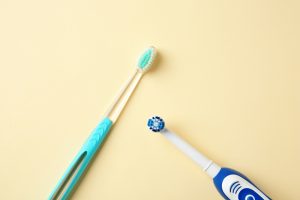

Gum Disease and Kidney Disease: Understanding the Connection
Many people may not be aware that gum disease and kidney disease share a close link. If left untreated, gum disease can lead to tooth loss, but it can also have a significant impact on overall health, including the kidneys.
Our dental team explains that the connection between gum disease and kidney disease is due to the spread of bacteria from the mouth to the bloodstream. Read on to learn more.
How Does Gum Disease Affect the Kidneys?
Gum disease can lead to an increased risk of kidney disease. People with periodontal disease are nearly twice as likely to have kidney disease compared to those without gum disease. The reason for this link is that the inflammation caused by gum disease can cause damage to the blood vessels in the kidneys, leading to decreased kidney function.
Risk Factors for Gum Disease and Kidney Disease
Several factors can increase the risk of developing gum disease and kidney disease. These include:
- Poor Oral Hygiene: Neglecting to brush and floss regularly can lead to the accumulation of bacteria in the mouth, leading to gum disease.
- Diabetes: People with diabetes are more likely to develop gum disease because of higher blood sugar levels,
- Smoking: Smoking can cause damage to the blood vessels, including those in the kidneys, and increase the risk of gum disease.
- High Blood Pressure: High blood pressure can cause damage to the blood vessels in the kidneys and increase the risk of gum disease.
Consequences of Untreated Gum Disease on Kidney Health
Untreated gum disease can have several consequences on kidney health. While the link between the two isn’t fully understood, studies suggest that gum disease may contribute to the development or progression of kidney disease.
One of the main ways that gum disease may affect kidney health is through the spread of bacteria from the mouth to other parts of the body, including the kidneys. When bacteria from the mouth enter the bloodstream, they can cause inflammation and damage to the kidneys. This can lead to a condition called glomerulonephritis, which is an inflammation of the kidney’s filtering units.
Gum disease has also been shown to increase the levels of certain proteins in the blood that are associated with inflammation and kidney disease.
Other consequences may include:
- Chronic kidney disease
- End-stage renal disease
Prevention and maintenance
Prevention and maintenance are key to protecting both oral and overall health, including kidney health. We recommend the following tips for preventing gum disease:
- Brush and Floss Regularly: Brush at least twice a day and floss daily to remove bacteria and food particles from your teeth and gums.
- Visit Your Dentist Regularly: Regular dental checkups and cleanings can help detect and treat gum disease early.
- Quit Smoking: Quitting smoking can improve overall health and reduce the risk of gum disease and kidney disease.
- Manage Diabetes and Blood Pressure: Managing diabetes and blood pressure can help reduce the risk of gum disease and kidney disease.
Frequently Asked Questions
Can kidney problems affect your teeth?
Patients with chronic kidney disease are predisposed to oral lesions and tooth decay. Medications for kidney disease can cause dry mouth, leading to oral health problems that can affect your teeth.
Can gum disease affect other parts of the body?
Yes, gum disease can have far-reaching effects on overall health. Research has linked gum disease to an increased risk of several health problems, including heart disease, stroke, and kidney disease. The bacteria responsible for gum disease can travel through the bloodstream and cause inflammation and damage to other parts of the body.
Take Action to Protect Your Health Today
Your oral health is a crucial component of your overall well-being, and gum disease can have far-reaching effects on your health. Don’t let gum disease go untreated and risk the potential consequences on your kidney health.
Take action today by calling your dentist to schedule an appointment for an evaluation and treatment. Don’t wait, take the first step towards a healthier smile and body today.

